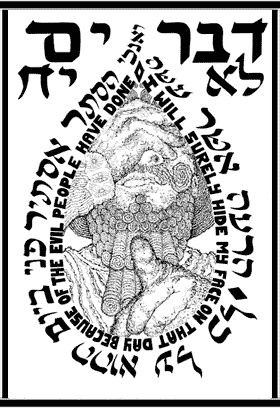
This showed up in my in-box this morning. If you're interested, send in a proposal; if you know someone interested, pass it on!
The Jewish Graphic Novel
Essays sought for an interdisciplinary collection co-edited by an art
historian and literary scholar. The growing subgenre of Jewish literary
and graphic culture contains a number of significantly innovative
aesthetic works that are increasingly recognized by literary critics as
an exciting form of alternative narrative that may also represent the
inception of a new visual literacy that has significant implications for
the future of Jewish literary and artistic expression. As the catalogue
of a recent art exhibit devoted to this cultural phenomenon states,
"Jewish Graphic novels represent an important genre in artistic
expression and assert the intensity of word and image in conveying
narratives that speak eloquently to the contemporary viewer. [They]
offer intense visual elucidation of Jewish historic and literary events
by combining intense illustration with searing social issues." Works to
be addressed may include graphic novels by Will Eisner (A Contract With
God: and Other Tenement Stories, Fagin the Jew, The Plot: The Secret
Story of the Protocols of the Elders of Zion) Czech writer Vittorio
Giardino's trilogy of volumes about Jewish life under the shadow of
totalitarianism: A Jew in Communist Prague: Loss of Innocence, A Jew in
Communist Prague: Adolescence, and A Jew in Communist Prague: Rebellion;
Ben Katchor's The Jew of New York; Miriam Katin's memoir of WWII
survival, We Are On Our Own; Neil Kleid's portrayal of mobsters in
Brownsville; Etgar Keret's surreal tales, Jetlag: Five Graphic Novellas;
Joe Kubert's stunning account of the Warsaw ghetto uprising in Yossel:
April 14, 1943; Joann Sfar's whimsically philosophical The Rabbi's Cat,
James Strum's disturbing parable of American racism, The Golem's Mighty
Swing; and J.T. Waldman's recent bold retelling of the essential Jewish
myth of power and powerlessness in Megillat Esther. The editors also
hope to include an essay or two on the impact of Art Spiegelman's
seminal works of Holocaust oral history in Maus: A Survivor's Tale: My
Father Bleeds History and Maus II: A Survivor's Tale: And Here My
Troubles Began, which crystallized the acceptance of the graphic novel
as a legitimate literary form. This collection aspires to fill an
important gap in existing scholarship by offering the first collection
of critical discussions to solely address the way that Jewish graphic
novels grapple with Jewish history, cultural politics, antisemitism,
portrayals of Ashkenazi and Sephardic identities, the role of the
Holocaust in the artist's cultural and moral imagination, political
controversy, literature, sacred texts, and myth through these
captivating works that render image and text in hitherto unimagined
forms. Other essays might consider the important role of autobiography
in the graphic novel and the role of the graphic novel in the Jewish
Studies classroom. This list is by no means exhaustive; other relevant
theoretical, pedagogical, or cultural approaches will be considered.
Authors are encouraged to use images whenever appropriate but they are
individually responsible for all necessary permissions. Papers from all
disciplines, or interdisciplinary submissions (whether focused on single
works or comparative discussions), are welcomed. Send brief bios along
with abstracts (300 words) or complete essays that follow the current
edition of the MLA Style Manual to both Ranen Omer-Sherman
rosherman@miami.edu and Samantha Baskind s.baskind@csuohio.edu by
11/30/06.